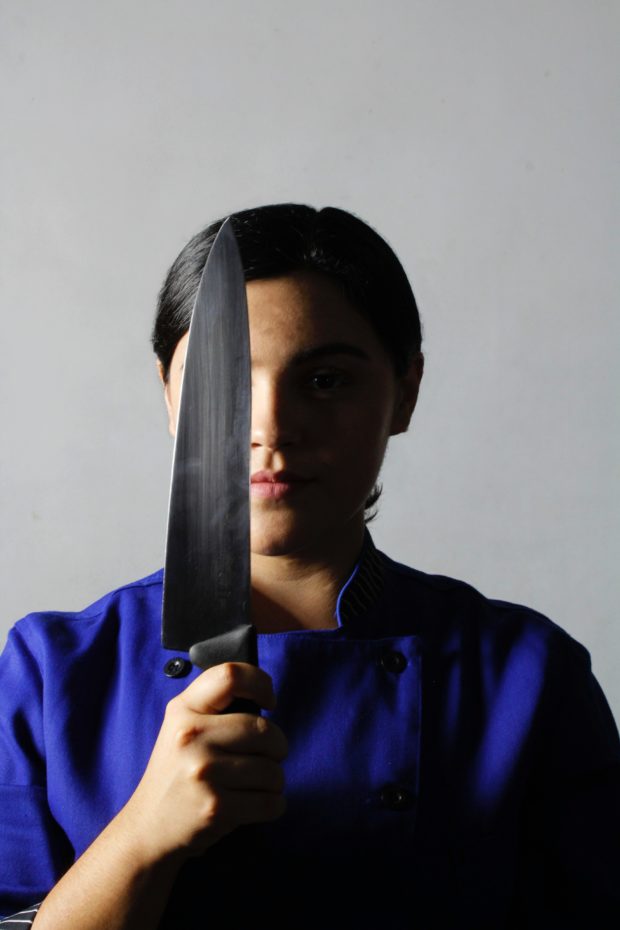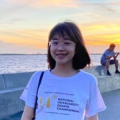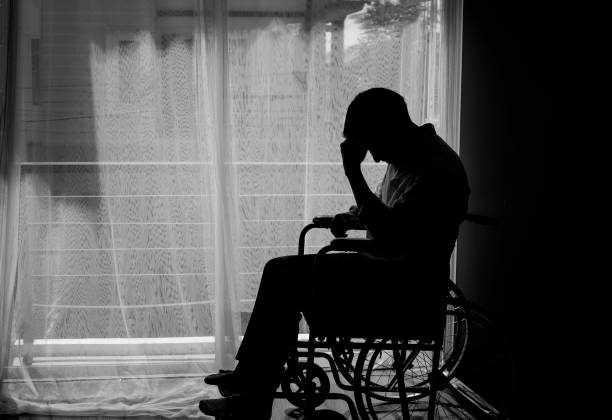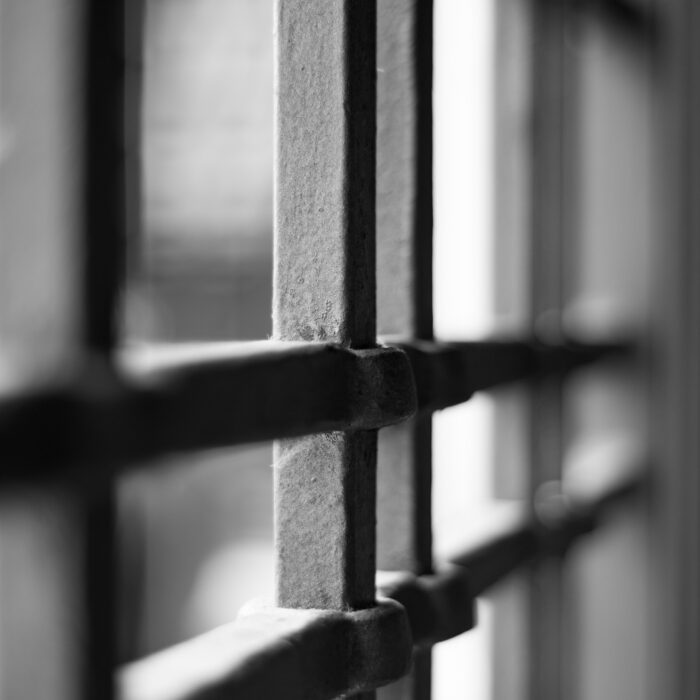You have no items in your cart. Want to get some nice things?
Go shopping
Momma keeps her eyes on me instead of the road. We are going somewhere far. Somewhere not near home or the park or the three-story knife store. Somewhere I have never been to like a supermarket, her office where she cuts up patients and puts their flesh into Tupperware boxes or Doctor Monica’s house in Friends, New York.
“When are we going to arrive?” I saw her sharpening her knives before we came, pressing the jarred edge on a rock and scraping it through. Maybe she is going to cook. Maybe she is going to take us to a nice restaurant where the customers are the chefs. Maybe she is going to sharpen her knives some more on the big rocks near the lake. Maybe she is going to show me one of her patients, tummy cut open, intestines hanging out of the carved body, knotted into a bow. I’ve seen her do that. I’ve seen her in her bedroom, the walls painted the color of blood. The same color as the blood that sprouts out of my gums when Momma pulls out baby teeth.
“Almost,” Momma mutters. Her eyes are still focused on my arm, my back, the back of my neck, my full fleshy cheeks hanging loose on my head bones. She licks her lips and makes a seething sound, like sucking in saliva. Dark gaps between my teeth fill my smile. My cheeks stretch and pull taut on my head bones, and Momma turns away to look at the road. That’s where she’s supposed to be looking.
Momma tells me not to call them head bones. They are called “skulls”, she said as if she were some “skull” expert. Actually, I’ve seen her collecting them in her bedroom. Maybe they are from the patients who came too late. Maybe they are the ones Momma could not save. Maybe they paid her with “skulls” instead of precious money. I heard that money was hard to find. I heard that Momma had to scavenge the streets for wild animals, since she couldn’t afford to buy meat.
“You made the best dinner yesterday, Momma. Fresh ground meat with some kind of leaf?” I smile. My cheeks tug against the edges of my head bo— “skull.”
“It was basil. I’m glad you like the meat. It was from one of the biggest animals lurking around Fifth Avenue,” Momma says. She looks at me but not at my eyes. Her gaze sweeps my arms, my legs, my cheeks and looks back at the road. She makes a seething sound and waits for the silence to settle.
“Are we there yet?” I cannot wait for what Momma is going to show me. She could be making the best dinner. White and sturdy meat with pepper and a dark red, thick sauce. Salty and hot, served on a large plate with a side salad and some kind of chopped slimy stuff.
“No, baby. A few more minutes.”
“Where are we going?”
“My office. It’s very big, and it has so much stuff you’ll be interested in. You’ll never want to leave.” Momma licks her lips again. I thought Momma worked at a hospital. She told me she is a doctor. I guess doctors work in hospitals, right? Momma does her operations at home. The hospital’s always full, she says, and she’s one of the most skilled doctors who don’t need nurses. She’s a stay-home-doctor.
She showed me one of her operations a few months ago after I insisted I stay with her. The patient came to our home, sleeping in Momma’s arms, blood dripping from a long, nasty gash down her throat. Her blood messed up the floor, but I wanted to save the poor woman’s life so much that I didn’t bother cleaning up. Momma brought me to her bedroom. The maroon-painted one with dry specks of red-brown along the floor. She uses the other bedroom as an “asylum” for patients. She sharpened her knife, cut a long gash down the woman’s tummy – torso, Momma says. I don’t know what’s inside a woman’s tum— torso because I don’t know the words. I already learned some of them from Momma, but she says she’ll teach me more when I’m older. I learned the parts where the animals down Fifth Avenue liked to eat, how they tasted for the animals and how they would taste like for the insane patients who eat their own flesh.
I am never going to eat my own flesh, I said and Momma would lick her lips, ignore me and crack the woman’s ribs one by one. The snapping sound jolts through my ears. I scrunched up my nose because the stench was hideous (a new word I learned from Momma). It was hideous and made me want to puke – Momma says “puke” is impolite, so I am going to say “vomit.” It made me want to vomit. I almost did before Momma said that it was the smell of the woman’s soul being ripped from her body when she died. She said that I would never be able to smell my own soul, and that I should pay attention to this moment.
Does it hurt, Momma? When her soul is ripped away? I asked. Imagine that stench and noise coming from my body when I die. I shuddered beside Momma.
She is far from conscious, baby. She doesn’t feel anything, Momma would say.
Why did she die, Momma? Was it too late? I said. Momma only shook her head, cut out chunks of the woman’s body and put them into extra-large Tupperware boxes.
What are those for, Momma? I see you put them in the fridge. Are they for the hospital? I said. She nodded, and replied with her usual medical gibberish that I will learn when I’m older. I want to become a doctor, so I can be like Momma. Only, I’ll be better. I will save people’s lives and send them back home to be with their family. I will not have to inhale (a word I learned from science class with Momma) the stench of their soul being ripped from their body because I’ll be the best doctor ever.
Momma says it’s a difficult job, and that I should not be a doctor. She says it will only damage my innocence and beauty. I know she worries for me, but saving people’s lives cannot be that damaging, can it? I’ll get to hold big, long knives. I’ll be those heroes in books that hold big swords. Heroes can be beautiful and innocent, can’t they?
She has become more supportive since I stayed with her that day. Where she cracked the patient’s ribs as if they were Velcro, blood splattering in her bedroom. I talk to her a lot about her patients. Ask if she knew them well. Some she did, like Auntie Penny who lives in Queens. I visited her often, but I didn’t like her much. Momma did much more than she should’ve done to someone so mean. She said she knew the woman who just died. Her name was Phoebe, found lying on the street a few blocks away from home, nobody with her, family estranged. Momma did her best to carry her home, but it was too late.
We stop to pick berries on the way. I take our picnic basket, still smelling of the meat sandwiches we had for lunch.
Momma trails behind me. She holds a knife in her hand. I wonder if there are delicious wild animals here in the woods. Momma says meat is expensive, and that I should be thrifty when I eat them. Even a job as a doctor cannot bring her enough money to supply us with meat. That’s why she has to hunt them on her own. I wonder how much meat must cost in supermarkets.
We never go to supermarkets. Momma says the people there are too rich and haughty (a word she used). She says that the people there will only look down at us because we are not rich enough to shop there. Only the president shops there, Momma says.
I drop a dozen berries into the picnic basket. I turn back to look at Momma, but she doesn’t smile. Her finger-joints are the colors of bones, and her eyes are like feral animals on the street. Her teeth are clenched, her eyes enlarged in size.
“Momma?” My voice shakes. This must be what she looks like to the feral animals she hunts.
“Momma?”
She snaps back from her act. Her gaze shifts from a wild feral animal’s to a kind woman’s. Her grip on the knife loosens and almost drops to the ground. Her eyes shrink to their normal size, and her seething sound stops.
“Yes, baby?”
“Why are you looking like that?”
“So the animals can be scared, baby. They could attack you. I’m right here, and if anything comes to attack us, we’ll be eating it for dinner tomorrow.” Her voice flows smoothly yet prickly like running fingers down the maroon-colored silk she covers her patients with.
“Are there bears here, Momma?”
“It’s better to keep safe in case there are, baby.”
The berries we picked are as fresh as the flesh Momma stored in the fridge. We get into the car, and the sky turns into the color of Kool-aid. Momma doesn’t talk. She was never eloquent (my favorite word from English class), and doesn’t talk much. But she loves to stare at me. Her fingers graze my skin, brushing on the tiny hairs and sending chills down my spine (a word I learned from Momma when she examined her patients). She often helps me apply a thick layer of lotion, but she did not help me today. She often wraps her fingers around my arm and squeezes, so she can feel my flesh in her fingers. She often pinches my cheeks until the skin goes taut and tugs on my head bo— “skull.” I’ve got to say these words correctly, or I’ll never become a doctor. Once I become one, I can invent my own terminology (another smart word Momma taught me).
Momma says my skin is pretty, and that I should be grateful for my fleshy arms and calves. She says that I should apply a lot of lotion, so it’ll be soft and silky. She says my thick and loose cheeks are the thing people look for in a girl. She says they’re beautiful, and she likes to touch them and seethe, sucking in her saliva. I know that’s the sound she makes when she’s satisfied. She seethes when she’s happy and interested and excited and enthusiastic (she seethes when I use big words).
“We’re here.”
I don’t wait for her to turn down the engine. I sprint from the seat and run towards a worn-down cabin. Knee-high grass line the edges. A few berries the color of Froot Loops grow around the fence, and ivy seeps along the cracks in the dark-colored wood. The sun is the color of egg yolks on a sunny-side-up. It looms behind the cabin, and bright flecks of light reflect on the grass.
“Where are we, Momma? Is this your office?”
“Yes, baby. It’s a slaughterhouse.”
“I thought you worked at the hospital. I thought you were a doctor.” Momma likes to tell stories about people at work. Nurse Rachel, Doctor Ross, Doctor Monica, another Nurse Joey and some Chandler guy. I’ve heard those names many times as if I knew them myself. Momma knows them well. They are her best friends, but she never lets me meet them. She says they all live in Friends, New York and meet Momma at a coffee house near Central Park. I’ve lived in New York since I was born, but I’ve never heard of a city named Friends. I guess doctors are not so good in geography.
“I’m a special doctor, baby. Sometimes I work in the hospital, but Doctor Ross and Monica are such skilled people that they don’t need my help. I bring my patients here. The ones that came too late, and cannot be cured. This is a special place for them.” Momma gives a lackluster smile, digs her nails into my hands and walks me towards the wooden cabin.
“Are there patients here that are alive? A hospital should be clean. This doesn’t look so clean. How often do you come here?”
“Every weekend. They don’t need special help, baby. It’s a slaughterhouse. This is where the patients are slaughtered.” Momma’s grip on my hand tightens. She leads me closer into the cabin and the door creaks open.
“What does ‘slaughter’ mean, Momma?”
She smiles at my question. She always smiles when I use big words. She smiles every time I talk about spines, head bo— “skulls” and torsos. Even rib cages. I’ve seen them. They’re light yellow, my second favorite color after maroon. Our home is painted that color from the outside and maroon on the inside. I see those colors every day, especially in Momma’s bedroom. They’re the color of blood and bones. They’re every doctor’s favorite color, Momma says.
“‘Slaughter’, in medical terms, means ending their suffering. Taking the life and pain out of them, baby. This is what I brought you to witness. I know you want to be a doctor. You will get to experience this yourself. There’s a patient waiting to be slaughtered. She’s been asking so many questions and turning insane. She doesn’t know what she’s getting into, so we have to keep quiet. We’ll give her some sleeping pills, and we’ll slaughter her, so it won’t hurt. This is what a doctor does, baby. You will be a wonderful doctor once you witness this. Medical students don’t get to be a part of this because it’s very risky, but you’re with me. You’ll be safe.” Momma’s eyes shimmer the color of turquoise. Her nails grip harder onto my wrist, and her other hand grazes the sensitive skin on my neck. “Are you ready, baby?”
I nod. I am finally going to do the things good doctors like Momma do. I’ll slaughter a patient and release her from her pain. I’ll get to learn the names for all the body parts. Rib cages, spines, skulls, hearts. I’ll learn how to slaughter someone the right way, to make it not hurt. I’ll be a wonderful doctor.
Momma says the patient is upstairs and she’ll get her. She tells me to wait and look at the things on the walls. Rows and rows of jars, filled with a transparent liquid, a variety of different organs floating inside.
Livers, hearts, brains, eyes, intestines, whole babies, heads, severed hands.
This is what I’ll collect when I’m a doctor. I see lines and lines of skulls, yellowed through time, arranged in a neat pattern ranging from smallest to largest on another shelf. Groups and groups of hefty femurs, rib cages, pelvises, fibulas, humeruses and clavicles. I can name them because they’re labeled. Elliot’s rib cage. Gertrude’s humerus. Baby John’s femur. Rachel’s pelvis. I touch them with the tips of my fingers. They are hard, chalky and real. They feel very real. I tip-toe to touch the rest of them. More skulls, bones, intestines and hearts. Even a brain. I wonder why Momma kept these. They are incomplete. Some parts of the livers are lined with teeth marks. Bones lined with the half-moon of nails and teeth marks scraping along the edge. Intestines torn in half and cut up into pieces. Hands with the index finger bitten off. What were these patients doing before they died? Was biting off their own finger painful?
My eyes scan the rest of the jars, and they land on the one in front of me. Jane’s heart, old blood seeping out of the aorta. Dark red, the color of death. Momma showed this to me and labeled all the parts of a heart. But she did not tell me it was Jane’s. I remember my friend Jane. She came with Momma here. She told me she wanted to be a doctor like me, so I told her Momma was one. She came here, and she never came back. Momma said she moved to California, but she never called. She never contacted me when she visited New York. I never heard from her again, best friend Jane. She must be dead. A person cannot live without a heart. I never got to go to her funeral, best friend Jane.
I hear the stairs creak behind me. I don’t turn around. I know it’s Momma. I keep staring at Jane’s tiny heart, the size of my fist, soaked in a translucent fluid. It stirs as if it were still beating.
“What happened to my friend Jane, Momma? Was she one of your patients? Did she get the disease from the other patients here? She came here with you, remember?” I miss best friend Jane. She must’ve caught the disease from the other patients here. I never should have let her come with Momma. Momma says I’ll be safe here, but best friend Jane should have been safe too.
“Best friend Jane? That’s her heart isn’t it? Oh, I remember her. Such a dear, but she couldn’t stop talking during the drive here. She kept saying that hospitals should be in the middle of town. She said that nobody lives here, so there won’t be any hospitals here. I told her that she was wrong, but she kept talking and talking. I had to make her stop. Her parents contracted her disease and died a few days later.” Momma says as if she were singing a rap song. Her words blend together like they are one long sentence: supercalifragilisticexpialidocious.
“Why are you talking so fast, Momma? I read a book that said someone who’s talking so fast is lying. Are you lying Momma?” She should be lying. Best friend Jane did ask many questions, but she was curious. That’s what I liked about her.
Momma does not look at me. Her eyes glance at my fleshy calves, bruised like a pink peach. Her seething sound comes again, and her fingers twitch as if she were playing a piano. One of her hands is behind her back. I think I know what she’s holding.
“Momma?”
“I’ve been lying to you, baby. I am a butcher. I was never a doctor. Doctors don’t slaughter their patients.” Momma’s voice sounds as if she were speaking in water. I don’t hear it clearly. I hear echoes, overlapping voices, chanting “butcher, butcher, butcher.”
Why did you lie, Momma?
Butchers cut up all the edible meat. Momma says she hunts her own meat, butchers them up, puts them in jars and eats them raw. She tells me she keeps human hearts, livers, skulls and brains. She collects them. She butchers them. Momma says she slaughters innocent people walking down quiet alleys near Fifth Avenue. She bites their intestines raw, stench still acrid, dripping with bile.
But why, Momma?
Momma keeps talking. Momma says doctors don’t work at slaughterhouses. Butchers don’t work in hospitals. Butchers slice up animals, doctors slice up people. But Momma is a special type of butcher. She slaughters people and eats them, Momma says. She keeps talking. There is no Nurse Rachel, Doctor Ross or anybody. There is no Friends, New York. There is no insane girl patient waiting to be slaughtered.
I don’t want to die, Momma.
Momma.
Blood splatters on the berries.

Yanitta Iew
Yanitta Iew is a high school student from Bangkok, Thailand. She writes poetry, short stories and novels when she isn't drowning in a sea of homework. When she isn't writing, she's listening to slam poems, binge-watching sitcoms or has her eyes glued to an oscar-winning screenplay. Yanitta used to be a part of a Creative Writing club in her school before it shut down, so she writes in class when her teachers aren't looking.




